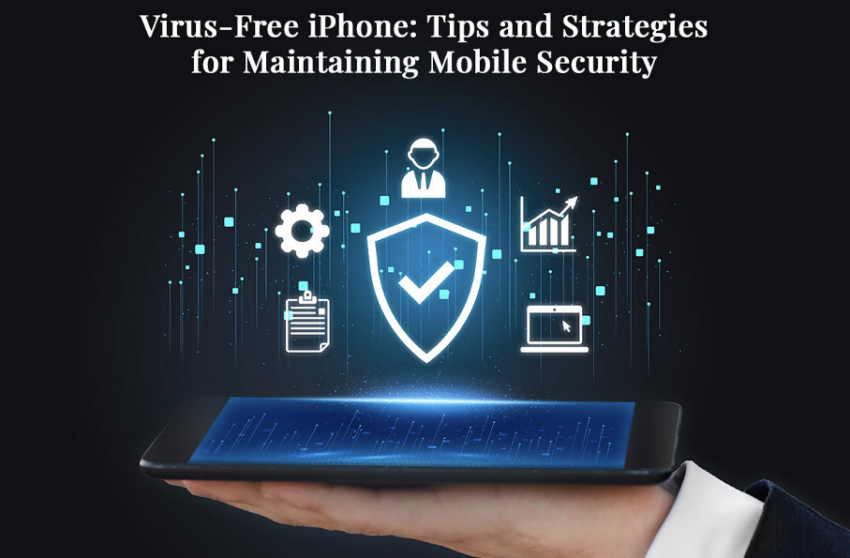Would you agree that technology is deeply integrated into your life? Can you imagine your life without your trusty smartphone? For most people, life without smartphones feels incomplete. They are handy tools for productivity, communication, and entertainment. In particular, iPhones have earned a reputation for being a reliable partner in crime due to their robust security and timely updates. Apple’s strong commitment to protecting user data drives iPhone sales. To get the most out of your device, it’s important to refer to the owner’s manual, which provides valuable information on maintaining security and performance. Nevertheless, users often wonder if their iPhones can get malware from websites, and that’s why having a repair service like the Best Place to Fix iPhone in Chicago can be really useful for iPhone users.
Although the strict security measures put in place by Apple make the iPhones less susceptible to malware infection than other devices, it is not entirely impossible. So, in this guide, we will explore the question of whether your iPhone can get malware from websites and offer strategies and tricks so you can maintain a virus-free device.
Can your iPhone get Malware from Websites?
iPhones are specifically designed with several layers of security. Hence, they are a tough nut to crack for cybercriminals. Unfortunately, the online landscape is constantly evolving, and cyber attackers are coming up with new and improved ways to attack devices. It’s crucial to check URL for malware, as cybercriminals often use malicious links to compromise devices.
So, the answer to can iPhones get malware from websites is yes, but this is extremely rare. Some ways your phone can potentially be infected from websites are discussed below. Ensure you take proper steps to keep your phone safe.
- Malicious codes on websites lead to the installation of malware in the iPhone. You must always double-check the authenticity of the website before clicking anywhere.
- Phishing attacks compel users to reveal personal information or download malicious apps on their phones. Be aware of phishing!
- Sideloading applications from untrustworthy sources or downloading items from unknown websites can plant malware in your device.
- Jailbreaking may weaken the security of your phone and make it susceptible to malware.
No, there’s no need to be scared because your iPhone isn’t immune to threats. Apple already equips the iPhone with in-built security features that you can use and combine them with some basic strategies that are mentioned below to enjoy a virus-free iPhone.
Mobile Security Strategies to Enjoy a Virus-Free iPhone
- Keep the iOS software and apps up-to-date
Software updates are regularly released by Apple to enhance security and resolve vulnerabilities. You must make sure the iOS version is updated so you can enjoy the latest security patches and performance enhancements. Also, update the apps regularly by going to the App Store. App updates also include security improvements that fix bugs and ensure seamless compatibility.
- Implement safe browsing practices
Browsing the Internet comes with its unique challenges. You must be cautious of the websites you are visiting. It is best to stick to known websites with a good reputation. Always avoid visiting unknown sites and never click on suspicious-looking links. When you need to download items, only trust well-known sources.
Additionally, use a security-focused browser for your digital adventures. Apple’s default browser, Safari, is already packed with anti-malware and anti-phishing features. But if you are adventurous and want to go beyond Safari, you can check out other security-focused browsers like Brave and Vivaldi.
- Use pop-ups and ad blockers
Safari and other modern web browsers offer pop-up and ad blockers. You must ensure to enable this feature so that harmful and malicious pop-ups cannot plant malware on your device.
- Install a VPN
VPNs offer an additional layer of security by hiding the IP address and encrypting the Internet connection. In discussions about comparing best vpn reddit services of 2024, Reddit users often highlight recommended providers that offer the best balance of features, prices, and performance. Engaging with these recommendations can provide insights into user satisfaction, real-world testing results, and how these services fare in various scenarios, aiding in making an informed choice. Additionally, comparing top VPN services of 2024, whether through expert reviews or user feedback, can offer valuable perspectives on the current landscape of VPN offerings and help individuals narrow down their options effectively. Thanks to this, it makes it difficult for cybercriminals to monitor your online activities. Trust the reliable ubiquiti installer near me to install a router for you.
- Use security apps
Installing antivirus or anti-malware apps is necessary because the digital universe opens your device to diverse malicious actors, including malware. With a security app installed on your phone, you can regularly scan your device and stay protected against known threats. Also, do not forget to keep the security app up-to-date.
- Exercise caution when sideloading applications
Generally, iPhone users are recommended to only download applications from the App Store. The apps are thoroughly checked and verified before being added to the App Store. Hence, these apps are safe and will not infect your device with malware.
However, if you have to sideload applications, ensure it is done from verified sources. This can help to minimize the risks.
- Update and educate yourself
Last but not least, you must continually educate yourself and stay informed about the latest threats. You must also learn the best practices for keeping your iPhone virus-free. If you need electronic parts for your iPhone, then you may consider sourcing from reliable electronics suppliers.
The Bottom Line
So, yes, your iPhone may get infected with malware and viruses from websites or when downloading applications and other items. The likelihood of this happening is extremely rare because Apple has packed its smartphones with high-end security features. However, there is always that one per cent chance of something malicious sliding into your phone and wreaking havoc. This risk can be minimized by educating yourself and creating a robust defense.

